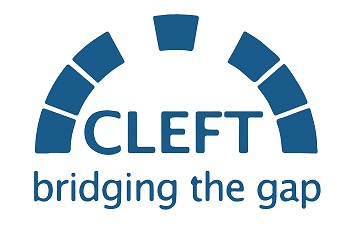Overview of Organisation
 We are a charity focused on providing permanent, sustainable, ways to improve cleft care in both the UK and overseas.
We are a charity focused on providing permanent, sustainable, ways to improve cleft care in both the UK and overseas.
Supporting a variety of projects, we are helping improve the lives of people born with clefts in many different ways. Broadly speaking, they can be described in two categories.
Firstly through our sponsorship of research projects in the UK, we are making headway into understanding why clefts occur and pioneering new treatments for children born with cleft lip and palate. These can potentially improve the lives of children born with clefts anywhere in the world.
And secondly our projects in other countries aim to support local medical teams to provide long-term treatment and care for people less privileged born with clefts. We are also able to support research projects by teams in those countries.
CLEFT’s ethos in international work

Cityscape
All of CLEFT’s international activity follow certain principles:
- To provide multi-disciplinary care – improving the lives of those born with cleft lip and palate by providing safe, comprehensive and inclusive treatment for the patient.
- Through education and training – investing in and giving value to people. Sharing knowledge around the world to provide stronger foundations for future generations.
- By building infrastructure – investment in equipment and resources providing kinder and more effective treatment of the patient.
- By working efficiently – resourceful and careful use of funds means donor money goes even further.
- By collaborating with local teams – working with and empowering local teams to create an enduring and sustainable framework for the future.
There will be no big ‘missions’ – except for teaching and we will be aiming for independence in the centre in 5 years if possible.

Workshop surgery in Egypt
Examples of progress made or particular achievements
Bangladesh

We are working with specialists at the new Sheikh Hasina National Institute of Burns and Plastic Surgery in Dhaka, Bangladesh to create a sustainable, multi-disciplinary centre to treat children with cleft lip and palate. This project has been in the making since 2017 and the team are now working independently and very effectively but still appreciate our support.
|

Ibrahim
|

Ibrahim and the calf
|
They have recently set up a training programme to train a new generation of surgeons and, hopefully in the future, other specialists. Currently two young surgeons are being trained in cleft and craniofacial surgery. They are also mid-way through a research project, funded by CLEFT, looking at the possible causes of craniofacial clefts. These two initiatives are just a few examples of how the team has grown in the last few years.
Film: Treating craniofacial clefts | Cleft
Kurdistan
For 10 years, there has been collaboration between CLEFT and the Centre for Cleft Lip and Palate Surgery In Sulaimania in the Kurdish region of Iraq to help develop multidisciplinary care for children born with cleft lip and palate and associated conditions.

Initially, this collaboration has been primarily about helping to train surgeons and hospital staff. There is one speech therapist in Iraq who works in Sulaimania. He is only able to work for one day in the cleft centre so this is one area where CLEFT could make a difference. CLEFT has plans to set up a paediatric intensive care unit through a very generous donation and may also be able to assist in providing equipment and teaching material.
Film: Sulaimania's first multi-disciplinary cleft team | Cleft
Egypt

Sohag is by the Nile in Upper Egypt – a very poor part of the country. CLEFT has been training cleft team members and helping to provide equipment since 2010, helping to improve results through collaboration and education.
Sri Lanka
For 20 years, Brian Sommerlad, the chairman of CLEFT, has been working with teams in Sri Lanka. Some of the Sri Lankan centres are now models for other centres in Asia. Others still need support.
Opportunities to get involved/ How to apply
With the expansion of CLEFT, we are asking if other cleft teams in low and middle income countries would like our help in developing their centres. We would be pleased to hear from them.
Any cleft clinicians who wish to discuss becoming involved in a project in a low or middle income country are encouraged to contact the chair of the steering committee or CLEFT by email.
Contact details